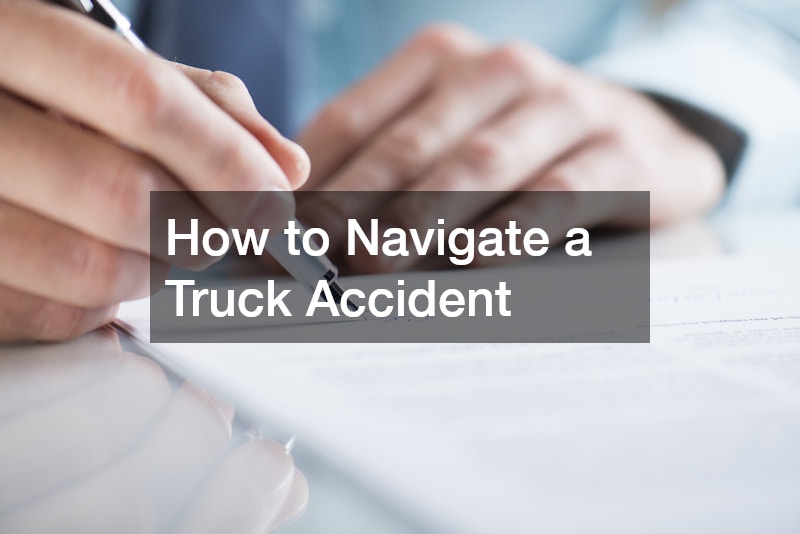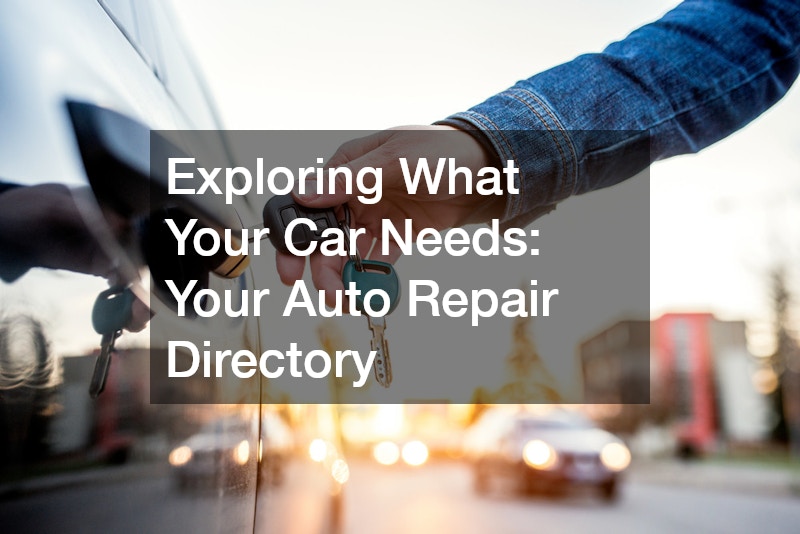Navigating the aftermath of a truck accident can feel overwhelming, especially when you’re dealing with injuries, property damage, and legal complexities all at once. Understanding the steps to take immediately after the crash, from calling for emergency towing to finding a reliable truck repair shop, is crucial for protecting your rights and minimizing further risks. Whether you’re managing insurance claims, locating a suitable car for rent while your vehicle is in the shop, or consulting a truck accident attorney, having a clear roadmap can greatly reduce stress and uncertainty.
In the moments following impact, prioritizing safety, documentation, and medical attention lays the groundwork for any personal injury lawyer to effectively advocate on your behalf. Timely engagement with a local auto repair service or a reputable trailer dealership can expedite vehicle recovery. Additionally, securing expert advice from a personal injury lawyer or truck accident attorney ensures you’re informed about potential compensation claims. By addressing mechanical needs—such as ac repairs or electrical repair—promptly and legally safeguarding your interests, you’ll be better positioned to navigate the often complex processes of recovery and restitution.
Assessing Immediate Safety and Calling for Help
The first priority after a collision with a commercial vehicle is ensuring everyone’s safety. If possible, move to a secure location away from traffic. Even minor collisions can escalate into dangerous situations, especially on busy highways or poorly lit roads. Once in a safe spot, call emergency services to report the accident and request medical assistance if anyone is injured. Simultaneously, dial your local emergency towing provider to remove disabled vehicles from the scene. Prompt removal reduces the risk of secondary crashes and allows traffic to flow more smoothly.
While waiting for first responders, activate your vehicle’s hazard lights and set up warning triangles or flares if you have them. If there’s significant damage, refrain from attempting to drive the vehicle; a tow truck equipped for heavy-duty loads is often required to transport large trucks and trailers safely. Having your insurance information readily available accelerates the claims process later. This initial response not only prioritizes life and limb but also sets the stage for faster engagement with a truck repair shop or trailer dealership, both of which play critical roles in restoring your vehicle to roadworthy condition.
Documenting the Scene Thoroughly
Comprehensive documentation is essential for any personal injury lawyer or truck accident attorney to build a compelling case. Use your smartphone to capture clear photos of all vehicles involved, focusing on points of impact, license plates, skid marks, road conditions, and any relevant traffic signs. If there are visible injuries, document those too. Note the date, time, and precise location of the accident, and gather names and contact information for all drivers, passengers, and eyewitnesses.
In addition to photographs, sketching a simple diagram of the scene can clarify the sequence of events. Record weather conditions, lighting, and road surface details, as these factors often influence liability assessments. Exchange insurance details with the other driver, and don’t forget to note the make and model of the tow truck if one is dispatched. Detailed records streamline discussions with your truck accident attorney and help ensure that any estimates from a local auto repair facility or truck repair shop accurately reflect the extent of damage requiring ac repairs or electrical repair work.
Seeking Medical Attention and Keeping Records
Even if you feel fine immediately after the collision, injuries such as whiplash or internal trauma may not present symptoms right away. Visiting a medical professional as soon as possible is vital—not only for your health, but also for establishing a medical record that supports any future personal injury claims. Ensure you receive a thorough examination, and keep all medical reports, diagnostic test results, and billing statements together.
Communicate all symptoms, even those that seem minor. A comprehensive medical record strengthens your case when negotiating with insurance companies or presenting evidence before a truck accident attorney. Follow-up appointments and physical therapy sessions also contribute to a clear documentation trail. Having these records on hand is especially helpful if you’re temporarily without a vehicle; arranging a car for rent while you attend medical consultations ensures you can focus on recovery without transportation hurdles.
Reporting the Accident and Contacting Your Insurer
Once emergency responders have cleared you and initial medical needs are addressed, notify your auto insurance company. Provide them with a concise, factual account of the accident, supported by the documentation you gathered. Avoid speculating about fault or engaging in extensive negotiations over the phone. Instead, focus on submitting accurate details, including police report numbers, tow truck information, and contact details for all involved parties.
Your insurer may recommend a network-approved local auto repair provider or truck repair shop to inspect and estimate the damage. While you have the right to choose where your vehicle is repaired, leveraging a recommended shop can expedite repairs and streamline the billing process. If your policy includes rental reimbursement coverage, you can arrange for a car for rent through your insurer, reducing out-of-pocket expenses. Carefully review your policy’s specifics to understand coverage limits and any required documentation for ac repairs or emergency towing costs.
Choosing a Qualified Truck Repair Shop
Selecting the right facility to handle mechanical and structural repairs is pivotal. A reputable truck repair shop will have experience with heavy-duty vehicles and possess certifications for welding, frame alignment, and hydraulic system inspections. Inquire about warranties on parts and labor, and ensure the shop can coordinate with specialized electrical repair technicians if needed.
If hauling equipment or trailers suffered damage, partnering with a trailer dealership offering parts and service can simplify sourcing replacement components. Reliable shops will provide detailed estimates and timelines, allowing you to plan rental car arrangements accordingly. They should also communicate transparently about any additional issues uncovered during their inspections, such as problems with the suspension or braking systems that could necessitate further ac repairs or emergency towing if left unaddressed.
Engaging a Truck Accident Attorney for Legal Guidance
Complex truck accident cases often involve multiple liable parties, including trucking companies, maintenance providers, or cargo shippers. A seasoned truck accident attorney can navigate this complexity, identifying all potential defendants and filing appropriate claims. They’ll conduct independent investigations, gathering evidence like driver logs, vehicle maintenance records, and black box data to establish negligence or regulatory violations.
Engaging legal counsel early helps preserve crucial evidence that might otherwise be lost. Your attorney can handle communications with opposing insurers, ensuring you aren’t pressured into accepting inadequate settlements. They’ll also advise on the statute of limitations for filing personal injury claims in your jurisdiction and negotiate on your behalf for compensation covering medical expenses, lost wages, and property damage. Retaining legal representation allows you to focus on recovery while your attorney manages legal intricacies.
Working with a Personal Injury Lawyer on Compensation Claims
Once liability is established, a personal injury lawyer will calculate the full extent of your damages. Beyond immediate medical bills and vehicle repairs, losses may include future medical care, diminished earning capacity, and non-economic damages like pain and suffering. A lawyer’s expertise ensures these factors aren’t undervalued during negotiations.
Your attorney will prepare a demand package comprising medical records, repair estimates from your truck repair shop and body shop, rental car invoices, and evidence of income loss. Should negotiations with insurers stall, your lawyer will file a lawsuit and represent you in court. Throughout this process, maintain open communication, providing any requested documentation promptly. A strong attorney-client partnership significantly enhances the likelihood of a favorable outcome.
Managing Temporary Transportation Needs
While your vehicle undergoes repairs, securing reliable transportation is essential. Many insurance policies cover a car for rent through preferred vendors. Coordinate with your insurer and the rental agency to confirm coverage and minimize out-of-pocket costs. If rental reimbursement isn’t available, seek cost-effective alternatives, such as using rideshare services or borrowing a vehicle from friends or family.
Keep detailed records of all related expenses, from daily rental fees to fuel costs. These receipts become part of your compensation claim, whether through an insurance settlement or lawsuit. A clear audit trail supports claims for reimbursement and ensures you recover every eligible expense. Planning for temporary transport also reduces stress during medical appointments, legal meetings, and any necessary visits to your chosen local auto repair center.
Addressing Specialized Repairs: Electrical Repair and AC Repairs
Truck accidents can damage complex systems beyond visible body damage. Electrical repair may be required if wiring harnesses are compromised, affecting lighting, instrumentation, or engine control modules. A specialized technician should inspect all electrical circuits to prevent future failures.
Similarly, accidents can disrupt air conditioning systems, leading to the need for ac repairs. Refrigerant leaks, compressor damage, or bent condenser fins are common issues. Addressing these promptly ensures a comfortable driving environment and prevents additional mechanical stress. Choose repair shops with certified technicians for these specialized services, and retain detailed invoices for inclusion in your compensation package.
Collaborating with a Trailer Dealership for Cargo Recovery
If the accident involved a tractor-trailer, cargo integrity and trailer condition become critical. A trailer dealership can assess structural components, suspension, and cargo securement systems. They’ll recommend repairs or replacement parts—such as axles, landing gear, and couplers—and provide OEM-quality components.
Efficient coordination between your truck repair shop and the trailer dealership minimizes downtime. Clear communication ensures all stakeholders understand repair priorities, from frame straightening to brake system overhauls. Detailed documentation from the dealership, including repair logs and parts warranties, strengthens your case when seeking reimbursement for business losses tied to delayed deliveries or interrupted operations.
Preparing for Litigation or Settlement Negotiations
As your legal team compiles evidence, remain organized. Consolidate all medical, repair, and rental receipts in a single digital or physical folder. Track correspondence from insurers, attorneys, and repair facilities. This centralized approach streamlines responses to discovery requests and bolsters your credibility in court.
Your truck accident attorney will advise on optimal timing for settlement discussions or trial preparation. Trust their judgment regarding settlement offers; they’ll weigh upfront compensation against potential verdict amounts. If a settlement is reached, review all terms carefully before signing. Ensure it covers outstanding medical care, ongoing ac repairs, and any future vehicle maintenance needs resulting from the accident.
Navigating a truck accident involves coordinated efforts across safety, documentation, mechanical restoration, and legal advocacy. By following these steps—calling for emergency towing, documenting the scene, seeking timely medical attention, and engaging skilled professionals from local auto repair shops to truck accident attorneys—you’ll protect your health, finances, and legal rights. Temporary transportation solutions like arranging a car for rent and securing comprehensive estimates for electrical repair or ac repairs ensure your daily life continues with minimal disruption.
Ultimately, working with experienced personal injury lawyers and reliable repair facilities not only facilitates recovery but also maximizes your compensation. Remember, early and thorough action is your best safeguard against complications. With the right team by your side—from trailer dealerships to specialized truck repair shops—you can navigate the aftermath of a truck accident with confidence and clarity.




